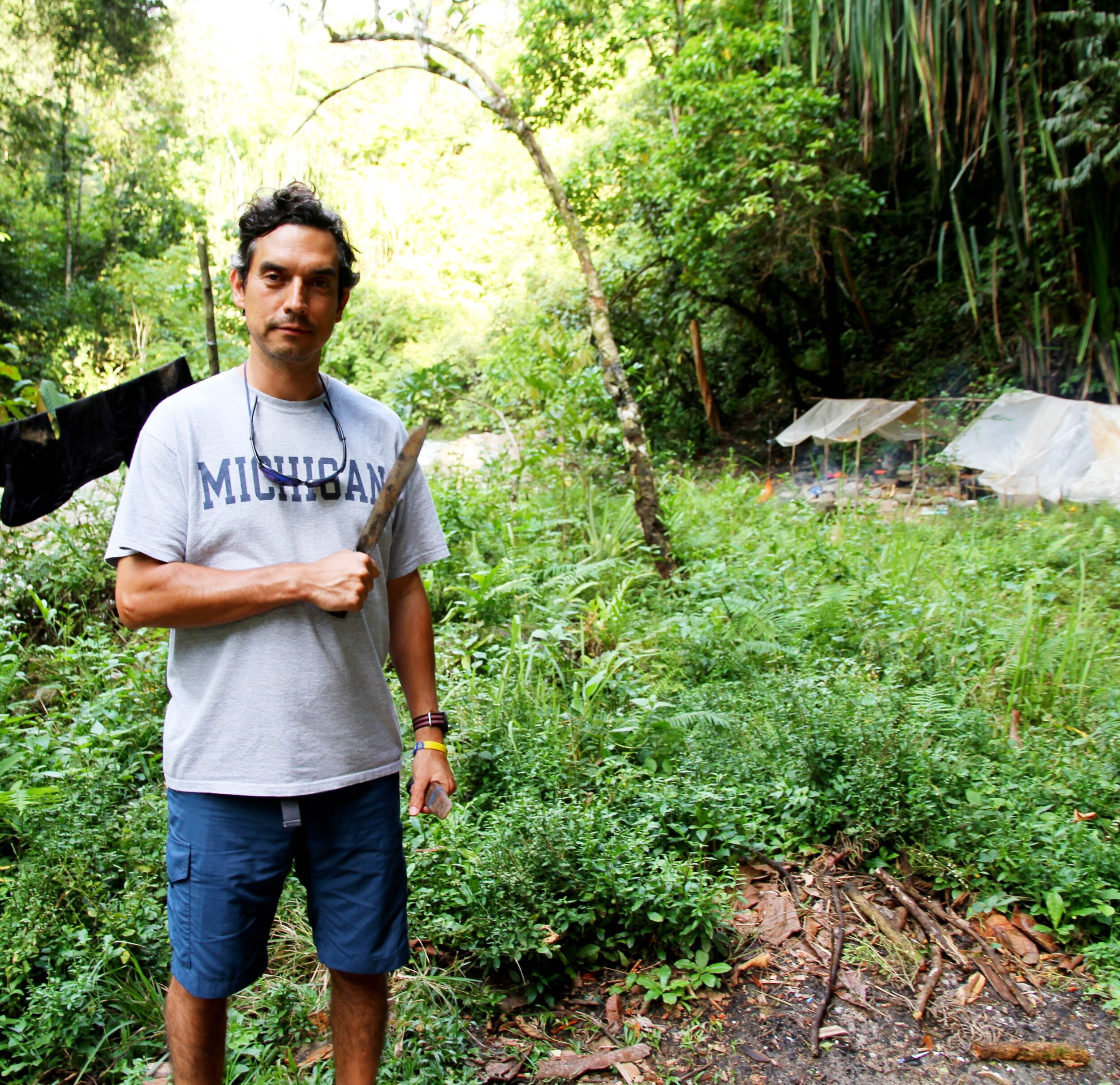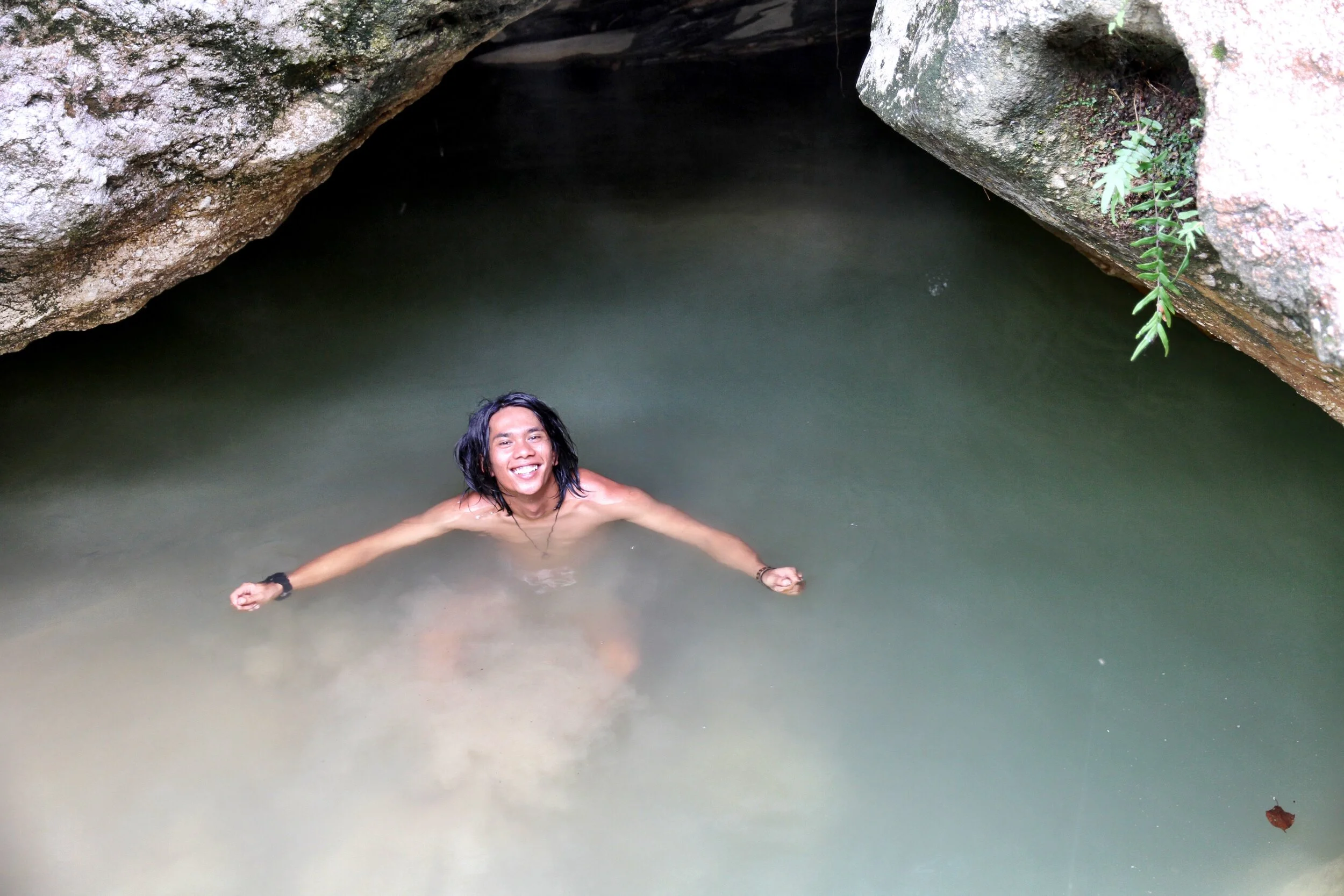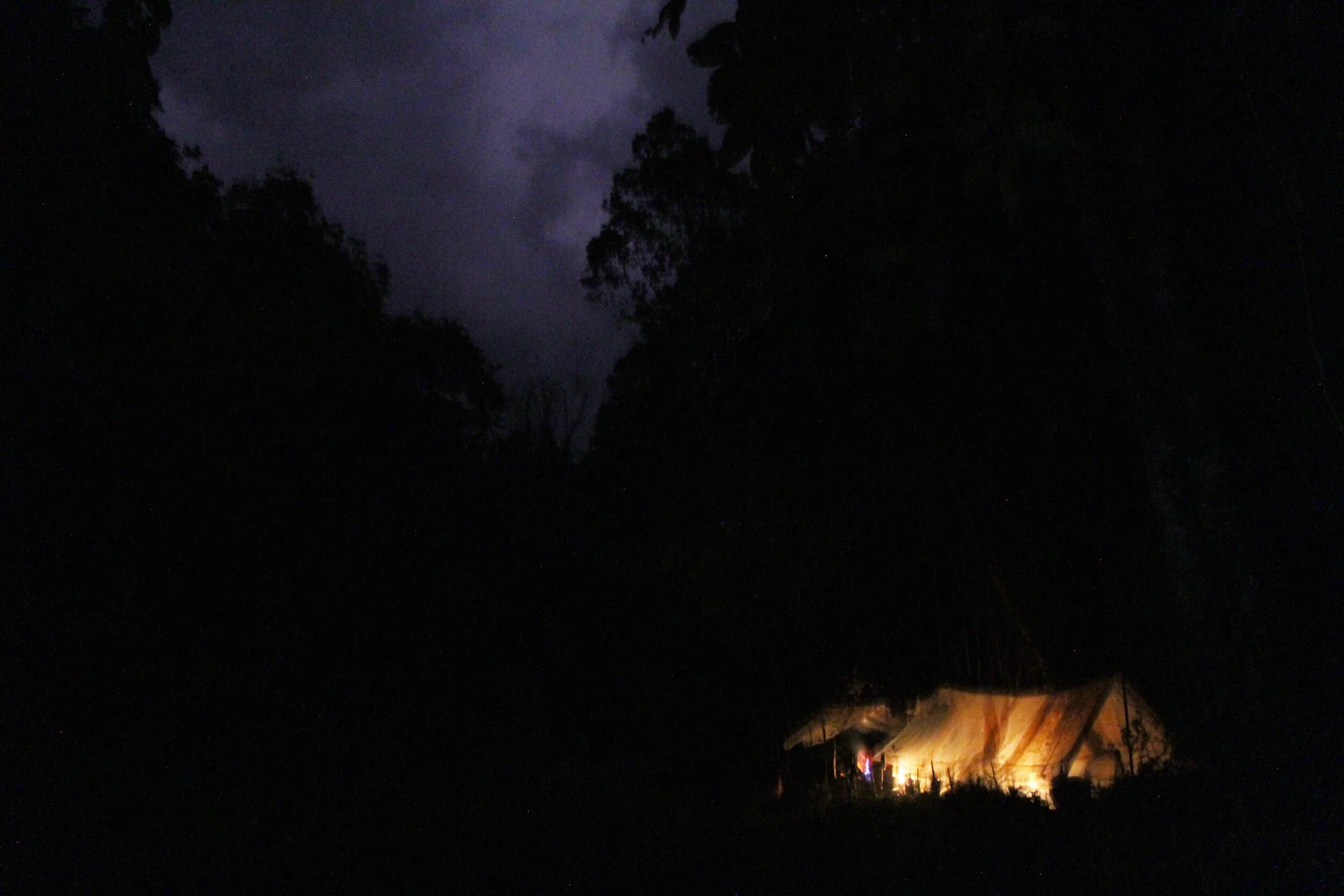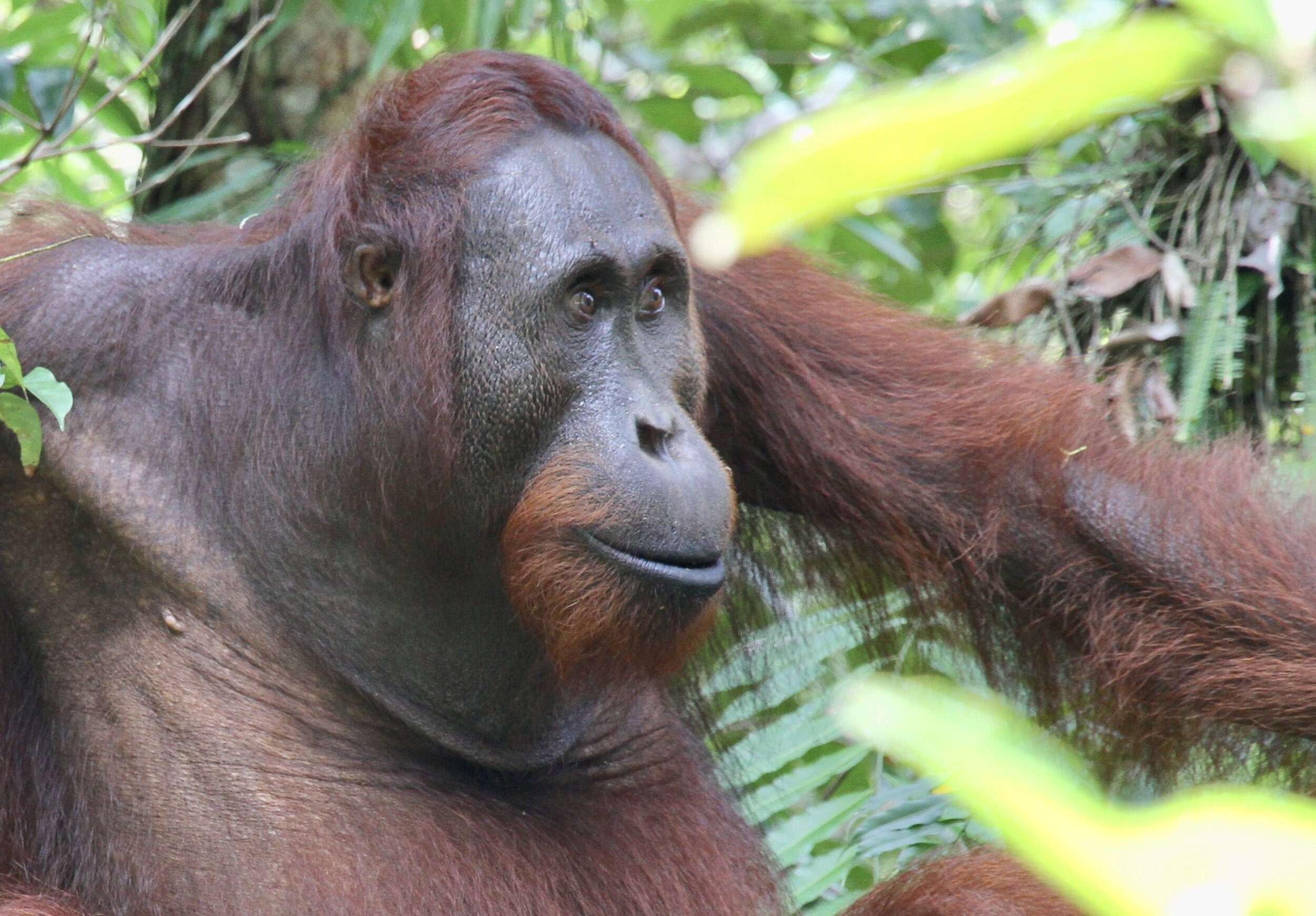Hati of Darkness

I’M AFRAID FERNANDO HAS GONE FULL KURTZ IN THIS JUNGLE. He’s been staring at, examining, at times caressing a rusty metal shiv made from, what has to be, a lawnmower blade. He got it from our guide Rajaa who borrowed it from our camp chef and shelter builder. Rajaa has shoulder-length hair, usually pulled back into a half pony, and reminds me of Rufio from the Lost Boys. His plucky personality adds to the effect.
Bangarang! My guide is from Neverland and my husband might be considering putting all of our severed heads on sticks.
I love the jungle.
Rajaa enjoying a naturally warm hot spring fed pool.
We’re out here, ankle-deep in Sumatra’s Gunung Leuser National Park searching for man’s closest red-headed relative, the orangutan. I’m ready to catch a glimpse of those pouty wittle wips, those wazy belly scratches, those wrinkly, hairy fingers grasping onto something sweet.
If I see a baby I might die.
Fernando and Antonio (Spain) spot our first orangutan in the treetops.
The only great ape found outside of Africa (actually I think all the apes are pretty great, monkeys too, but I’m not the one who makes up the categories), the name “orangutan” is Malay for “Person of the forest”. Unlike most orangutan encounters you find in Sumatra and Borneo, the apes of Gunung Leuser are wild, and are not trained to visit a feeding platform at certain hours of the day, so spotting them can be difficult, and selfies aren’t possible.
Day one paid off with two hits: one juvenile, not at all interested in us, just taking in the sunshine, drying off his coat from the last night’s rain, and one adult female, whose human-like fingers I saw extending, grabbing, contracting around her tree-top snack – absolutely amazing.
By day we were visited by a rowdy troop of macaques, and by night a rainforest deluge, complete with thunder so loud you felt it in the pit of your stomach. Our camp was pitched about 20 meters from an already rushing Gurah river, and all the mud puddles and scree around said this location floods. The should-be soothing pitter patter of rain on the plastic tarp overhead was instead a constant reminder of the abruptness and deadliness of flash floods. That day a good night’s sleep was more elusive than the orangutan.
Camp and an approaching storm.
As a child at home, I knew that April showers brought May flowers. Do you know what October showers during monsoon season bring? Leeches. Maybe the only thing worse than these tiny, bloodsucking predatory worms, is wearing leech socks in a sweltering jungle. Forever damp, and downright soggy at worst, leech socks are rugged cloth tubes that tie just under the knee, and if you need to squat for any reason during the trek, that tie digs into your calf, cutting off circulation.
On our final hike before our way back to basecamp at Pondok Wisata Guesthouse in Ketambe I refused to torture my feet again, and took my chances with the leeches. The day’s count of two was surprisingly low, considering the muddy ruts we had just slogged through, but those two final bastards got me good.
The back of my left knee has seen better, less bloody days.
Bloody, sweaty, tired and fulfilled, we chugged back through the village to warm smiles and friendly “hellos” – a word shared between English and Bahasia Malay. Rajaa entertained us with his own wild rendition of “Jingle Bells”, called…”Jungle Bells” (obviously), and translated road signs along the way. “Hati-hati”, or “Berhati-hati” is a term we have seen since Singapore, always in instances where danger is near. Rajaa confirmed, “hati-hati” means danger, but one “hati” means heart, and we sang “Hati-hati, don’t break my hati!” in Malay-nglish.
Back in Ketambe the three groups who had ventured into the jungle all met again, this time semi-clean (cold, sparse showers) and just a little buzzed (Aceh is a dry county so all beer has to come from Medan, and we bought out the neighboring guesthouses), we pulled the tables together and had one last family-style dinner.
Posing for a group photo, Rajaa suggested we all hold our fingers up in an “L” for the Leuser in Gunung Leuser National Park. I giggled to Fernando, then realizing we were the only two who understood why it was funny, we just played along.
After all, I know what that “L” is really for – it’s for leeches.
VERDICT: If you cross the rivers very carefully, and manage to not get bitten or stung by all the venomous and poisonous critters, or eaten by all the hungry predators, if you don’t step directly into the source of the hot springs, if you dodge the malaria and dengue fever, don’t engage the macaques, dry your feet at night, and just listen to your guide - Mostly Harmless.
-------
LINKS:
Gunung Leuser National Park: Big deal Sumatran rainforest and protected park. One of the few places in the world you can see truly wild orangutans.
Pondok Wisata Guesthouse: Comfortable but bare-bones Indonesian-Dutch guesthouse tucked into the jungle with fun, helpful hosts and a couple of en-suite cabins.










